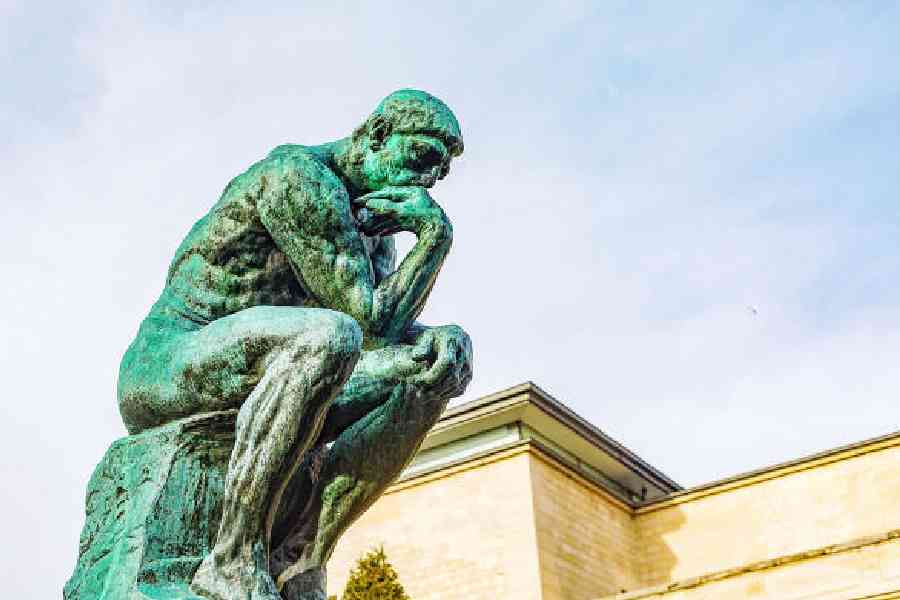The Philosopher’s Stone


q In this day and age, why should one study philosophy?
I am not just talking about our country, but the whole world, whoever knows the answer to this question I would like to meet them once. Are you too a student of philosophy?
q Not many students are coming forward to study philosophy in India. Why so?
I don’t know why you are talking about philosophy. How many people study Malayalam, classical music or Bengali literature? One has to practise classical music for 20 to 25 years and then you get to do a concert. How many can persevere for that long? How many people can become sculptors? No knowledge is useless… At Delhi University, we get students [in the philosophy department] who come in through admission test. JNU takes in very few students. Jadavpur gets a fair share of students. If you think about it, a subject like philosophy, which cannot lead you to any fixed career path, even then it gets so many applicants… The mass presence of a discipline, its material benefits and its exploits — these are three different things…So, what exactly do you want to know? I am happy with four students if they are truly interested. I am very happy that one of my students has became a professor at Oxford. The mass presence does not need to be very big and that’s okay.
q Do you think in every society, at least a certain percentage of the population should study philosophy? For the betterment of society?
As a journalist, your question is absolutely fine. But as a subject expert, what can I say? I cannot say with stress that one should study a certain subject. I cannot say one should study science, neither can I say one should study philosophy.
q Don’t you think at least some students should opt for philosophy?
I think of education as a form of an ashram. I will sit in one place and whoever wants to learn can come and just learn from me. I think the real question is, how is philosophy faring as a discipline in India? Are there any real professionals coming out, real philosophers?
There was a time in Calcutta when darshan [philosophy]was very popular. Many people who signed up for this subject would be from the mofussil.
I taught at the Acharya Brojendra Nath Seal College. Brojen Seal himself was a philosopher. Now it is mass production, thousands of students are being taught, but how many philosophers are coming out of it? In India, what is the state of professional philosophy?
q I want to add to your question. If people stopped studying physics in India, there would be an anxiety that India will not be able to advance scientifically. Does this kind of anxiety not apply to philosophy?
It depends on what kind of physics you are talking about. Physics is all about working out problems on paper. That has nothing to do with India’s development... Very few have studied English literature, but that has not hindered our country’s growth. This question only applies to practical disciplines. Physics, philosophy and literature — these subjects do not impact our society.
q Don’t these subjects impact our culture?
Culture is a different question altogether. People who practice popular culture do not know classical music at all and that too is a kind of loss for our culture. Now, when we have to listen to music, we listen to older songs. Not the new songs.
Even a regular person, maybe a rickshawwala, if you talk to them, you will find they too have a philosophy, they too have many valuable insights to share. I once asked one such person, “Bhai, niye jabe?” He said, “Agey bolun kothaye jaben? Agey jawata toh thik korun.” Decide on the destination first. So we do not need education; philosophy is embedded in our culture.
Where our society is headed, how it is progressing, these questions are not discussed in our departments. Whatever we discuss in our department, we do not do it for the betterment of our society, not at all. We do it so that our mental sharpness increases. When you study literature, you also study its criticism. Writers are writing for their readers, but not for the departments. But critics are writing for the department.
I don’t think this question is important at all. When I read Jogajog by Tagore, I thought why wasn’t the story designed like this instead? So I became a critic. It had nothing to do with society. In a department, it is all about how many publications, how many papers you have got.